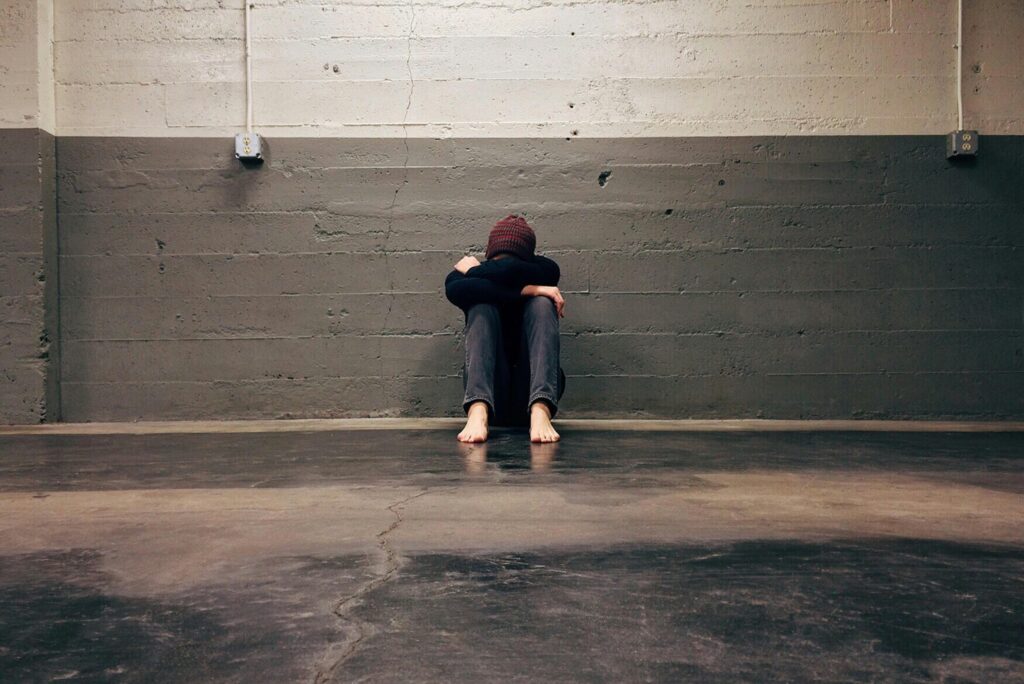4 Ways Trauma Shows Up As Depression

Have you ever experienced something so painful that it feels as though it will never fade away? And for some of us, the weight of this trauma becomes intertwined with depression. In this article, we delve into the relationship between traumatic experiences and depression, and hopefully help you understand how your unresolved trauma might linger as depression.
“Why even try?”
Trauma can leave a lasting impact on your mind and emotions. It can often make you believe that you have no power to change your circumstances, leading to a state called learned helplessness. This was shown in a 2012 study in animals – when they learned that it was impossible to escape a mild painful sensation during the experiment, they simply stopped trying to either fight or run. This feeling of helplessness later becomes a burden. The trauma replays in your thoughts, and depression sets in, making you lose motivation to even try and get better.
On The Lookout
Do you ever find yourself on high alert, unable to relax and constantly scanning your surroundings for potential threats – like your mind is always on guard, anticipating danger even when there isn’t any? As a 2023 study showed, this state is called hypervigilance, and it often accompanies the aftermath of trauma together with depressive symptoms. For example, being so focused on anticipating threats might make you focused on negativity and dwell on criticism. And while you’re in the depths of it, it may seem like it’s just impossible to see any positive or neutral experiences.
“Get me away…”
Going through a difficult traumatic experience shakes you to the core and often the emotions and memories become too overwhelming to handle. In order to protect yourself from those intense feelings, you might start avoiding anything that reminds you of the trauma: certain places, conversations, or even thoughts and feelings connected to the event. According to a 2010 study, this avoidance is what links trauma and depression. As you get depressed, you might also withdraw from the world around you, avoiding even family and friends. It might seem like avoidance is your safety net, shielding you from further disappointment or pain. But in reality, it keeps you trapped in a cycle of sadness and disconnection, and denies you the opportunity to heal and find moments of happiness.
Running On Empty
Do you ever feel like no matter how much rest you get, you’re constantly exhausted and fatigued, making even the simplest tasks feel overwhelming? This can be closely tied to both trauma and depression. A 2009 study found that traumatic experiences can disrupt the body’s stress response system and cause a condition called chronic fatigue syndrome. This is also a symptom of depression which makes it difficult to find the motivation and energy to get through the day and even activities that used to bring joy become a burden, because you’re simply just too tired.
Do some of these signs resonate with you? Are there other depressive symptoms that stem from trauma that we haven’t covered? Let us know in the comments if you feel comfortable. Trauma and depression are so hard to handle on their own, let alone combined, and we truly feel for you if you struggle with both. If you’re in need of help, please consider visiting a mental health professional. In the meantime you can get some support from Psych2Go by taking a look at this daily routine to fight off depression. We got your back! Thanks for reading, and take care!
References
Dulin, P. L., & Passmore, T. (2010). Avoidance of potentially traumatic stimuli mediates the relationship between accumulated lifetime trauma and late-life depression and anxiety. Journal of Traumatic Stress. https://doi.org/10.1002/jts.20512
Hammack, S. E., Cooper, M. A., & Lezak, K. R. (2012). Overlapping neurobiology of learned helplessness and conditioned defeat: Implications for PTSD and mood disorders. Neuropharmacology, 62(2), 565–575. https://doi.org/10.1016/j.neuropharm.2011.02.024
Heim, C. (2009). Childhood trauma and risk for chronic fatigue syndrome: Association with neuroendocrine dysfunction. Archives of General Psychiatry, 66(1), 72–80. https://doi.org/10.1001/archgenpsychiatry.2008.508
Kimble, M., Cappello, O., & Fleming, K. (2023). Hypervigilance and depression as predictors of eye tracking to ambiguous pictures in trauma survivors. International Journal of Psychophysiology, 187, 27–33. https://doi.org/10.1016/j.ijpsycho.2023.01.007




Responses